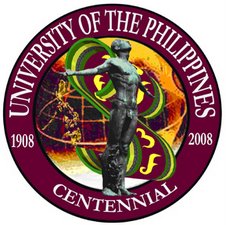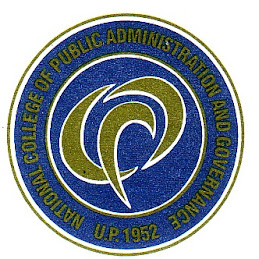Statement of ELISEA “BEBET” G. GOZUN
Recipient, UNEP 2007 Champion of the Earth Award for Asia and the Pacific
April 19, 2007, SHANGRI-LA HOTEL SINGAPORE
Source: http://www.unep.org/champions/Winners/winners2007/Statements/Asia-BebetGozun.pdf
Senior Minister Goh, Mr. Achim Steiner, UNEP Executive Director, Minister Yaakob Ibrahim and other officials of the Singapore Ministry of the Environment and Water Resources, the Singapore Tourism Board, fellow awardees, members of the press, ladies and gentlemen, friends and partners in protecting the environment: “Isang maganda at makakalikasang gabi sa inyong lahat.” (An environmentally friendly good evening to you all!) I always start my speeches by talking in Pilipino whenever I speak before an international audience - if only to remind each one of us that the value of our participation here really depends on what we do when we go back to our respective countries.
I am deeply honored by this award and would like to thank the UNEP for this recognition. I generously share it with members of my family, my colleagues in the Department of Environment and Natural Resources, and my partners in the business sector and civil society. I am also humbled, as this award recognizes the sum, not only of my accomplishments, but of the extraordinary deeds of many other Filipinos. They will probably remain nameless and will not be recognized nationally, much less globally, but they have decided to take the problems of the environment in their own hands and do so by working together to become a formidable force for change.
Work hand in hand, we must - given the magnitude of the problems we face. Consider the fact that while the Philippines is one of the megadiverse countries in the world, with recent studies showing that we are the center of marine biodiversity, we are also among the hottest hotspots. We’ve lost over 50% of our forest cover with less that 1 million hectares of our virgin forests left. Only 5% of our coral reefs remain in excellent condition. Air quality in most of our urban centers now exceed WHO Guidelines. 15 of our rivers are considered biologically dead during the dry months. Solid waste continues to accumulate and pollute our waters, our air and our lands. Add to all that, the fact that over 30% of our people live below the poverty line. You
can appreciate the challenges we face.
I believe that localized, community-based, multi-sectoral action is the response. It is key to making a difference in our pursuit to save and rehabilitate the environment, no matter how big or small the environmental problem is. This stems from a realization that societies resemble ecosystems – that there is a useful purpose for all elements; that while we operate within some range of resilience, even ecosystems are vulnerable and, that there are times when destructive elements need to be transformed.
However, that transformation can only happen if we are able to win them on the side of the environment. And, to do that, they have to understand the issue and relate to it at a very personal level – how it affects their family’s health; how it threatens their livelihood; how it downgrades their quality of life. When people are empowered to participate, they comprise that collective social energy that fuels development work. But communities need the support of other sectors to help sustain their activities. Support from government and business allows communities to go the distance. A government whose re-invented role is that of an enabler, providing the policy environment to allow all other sectors of society to assume their roles in managing and protecting our natural capital. Businesses that have adopted their corporate social agenda and have realized that the foundations for sustaining their economic interests are a healthy environment and well-managed natural resource base; that good environmental management is good business and, that they are part and parcel of the communities within which they operate.
At this point, let me say that mobilizing communities and sectors with differing interests to act together is a challenge in itself. as in many instances, especially in developing countries in my region, the challenge to conserve the environment comes hand in hand with the challenge to overcome poverty. We cannot claim environmental championship and yet totally ignore the need to aggressively address poverty.
As an activist, evolving from a cause for social justice and democracy towards one of sustainable societies which encompasses the former and includes responsible stewardship for the environment, let me end with an appeal for all of us to help catalyze another synergy – of the environmental movement and the movement for poverty reduction and justice. The means to do both is currently in our hands, and the span of a generation is time enough to do it.
Again, my deepest thanks to the UNEP for this honor and my congratulations to my fellow winners.


No comments:
Post a Comment